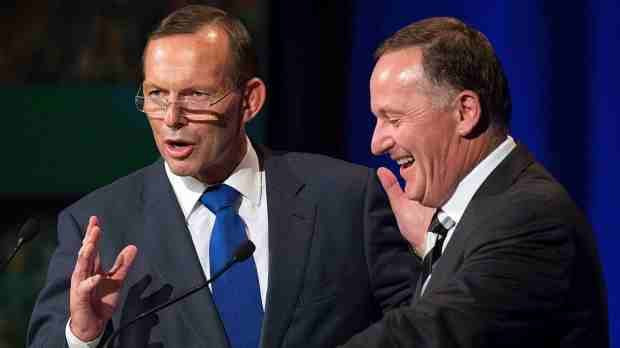New Zealand Cuts Interest Rates After Four Years: Crumbling Dollar Causes Concern

New Zealand has cut interest rates after four years. Considered as a bold move to maintain economic momentum and prevent slowdown, the Reserve Bank of New Zealand announced the trimming of Official Cash Rate 0.25 points to 3.25 percent. It seems the stagnant inflation and the anxiety over slumping prices of dairy exports forced the hand of the Reserve Bank with an urgency.
The economic data has been showing annual inflation at 0.1 percent, which is a 15-year low and below the bank's target of 1.0-3.0 percent. The action was also spurred by the continued crash in commodity prices, particularly dairy, which is New Zealand’s white gold, and is now a dampener on the overall economy after the demand from China is depressed.
TD Securities strategist Annette Beacher said another rate cut is looking imminent. "The markets will shift towards a follow-up cut to 3.0 percent in July, but as it may be wiser to wait for more data, we'll pencil in September for now," she said.
White Gold In Distress
As the world's largest dairy supplier, New Zealand’s milk industry has been earning more than NZ$15.0 billion (US$10.6 billion) a year and constitutes a third of its exports. But the "white gold" has lost some lustre, with prices almost halving due to higher exports from the United States and removal of milk production quotas in Europe.
Despite scare that lower interest rates may throw "petrol" on the Auckland house price fire, as sounded out by opposition politicians and a few economists, Reserve Bank governor Graeme Wheeler strongly defended the rate cut. Allaying fears of a free fall of the currency, Wheeler said the New Zealand dollar was "overvalued" and a fall is natural. The kiwi fell from about US72c to US70.2c on the rate cut, a five-year low. Wheeler quoted a recent report by the Peterson Institute that suggested New Zealand dollar being overvalued by 7 percent.
But concerns prevail that if there is a huge drop in the New Zealand dollar, it will shoot up import prices rise and consumers will be hit hard by rising local petrol prices. The big slump in world oil prices has been putting an extra $400 a year into Kiwis' pockets that they could spare for other things. That may evaporate if the dollar fell further.
Opposition Flays
Bank of New Zealand economists expressed surprise at the rate cut. "The cut will exacerbate the excesses in the housing market," BNZ head of research Stephen Toplis said. Labour's finance spokesman Grant Robertson said also said the rate cut is akin to pouring petrol on the Auckland housing market.
The Reserve Bank governor has a detached perspective, and said the Auckland market is different with its soaring prices that shot up 17 percent in the past year, while elsewhere they rose only 3 percent. "It is very much an Auckland issue," Wheeler said and said the central bank had already acted on it by tightening lending norms to property investors with the intent to keep out speculators from the Auckland property market.
(For feedback/comments, contact the writer at k.kumar@ibtimes.com.au)





















